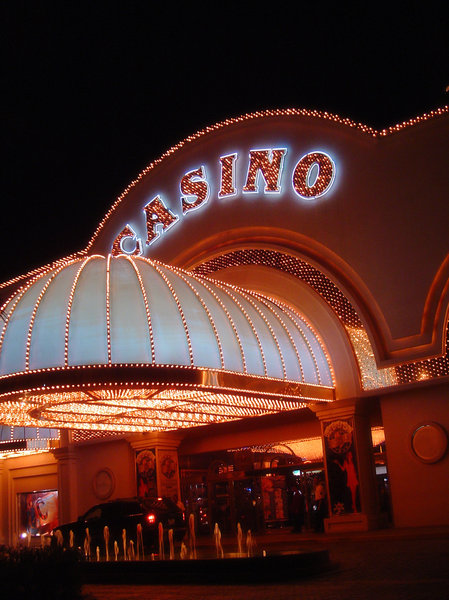
Casino entertainment have long been a captivating source of amusement, drawing millions of players from diverse cultures around the globe. trang chủ pg88 From the glitzy casinos of Vegas to the busy gambling halls of the Chinese gambling capital, these games serve as a link that brings together people across a variety of backgrounds. The allure of chance, strategy, and gambling entices not only those looking to gamble for profit but also those seeking a shared experience.
The significance of casino games extends well beyond the gaming floor. They often represent the social norms and traditions of the communities in which they prosper. Games such as Texas hold ’em, blackjack, and the spinning wheel have integrated into the mosaic of popular culture, influencing various aspects from films to style. As we explore this fascinating intersection of gambling and culture, we can comprehend better how these games shape and are shaped by the world around us.
Historical Evolution of Gambling Games
The beginnings of gaming games can be tracked back to historical civilizations, where betting in various forms was widely practiced. In Ancient China, around two thousand three hundred years before Christ, a variant of gambling known as Keno was popular, while in historic Rome, soldiers would frequently bet on the outcomes of their matches. The idea of using luck for amusement and gain developed over the ages, leading to the establishment of more structured games. By the late Middle Ages, gambling houses started to surface in the continent, notably in the Italian peninsula, which presented early incarnations of popular games still enjoyed today.
As betting increased fame in European regions, the 17th and 18th centuries saw the emergence of casinos as exclusive locations for gaming. The earliest official gaming venue, the Ridotto, was founded in the city of Venice in 1638, offering games like Baccarat and Faro. This era marked a crucial shifting point, as casinos commenced to welcome not just the high society but also the burgeoning middle-income class. The complexity of games increased, leading to the introduction of new regulations and modifications that enhanced the experience of players.
In the 19th century, the industrial revolution and transformations in social conventions additionally transformed the environment of gaming games. The introduction of roulette and contemporary slot machines drew a broader crowd, and gambling establishments became seen as legitimate recreation. This period witnessed the worldwide proliferation of gambling, as gambling houses extended from Europe to the New World, culminating in the development of the famous Strip of Las Vegas in the twentieth century. The progress of gaming activities has continued into the current era, including technology and online platforms, making them accessible to a global population.
# Cultural Importance across Different Cultures
Gambling games have profound cultural and social value across many societies throughout the planet. In Las Vegas, the very fabric of the city is woven around gambling establishments, where playing is not just a pastime but a fundamental aspect of entertainment and community interaction. The bright lights and lively atmosphere attract countless individuals, showcasing how casino games can shape local economical structures and cultural identities. This setting transforms the notion of relaxation into an engaging encounter that affects apparel, music, and even film.
On the other hand, some cultures treat betting with an air of caution, seeing it through the lens of morality and customs. For example, in many Asian cultures, games like Mahjongg and Pai Gow Poker are rich with history and have significant social relevance. These games are often played during gatherings and celebrations, fostering social ties and solidifying family ties. The act of participating in these games goes beyond mere amusement, reflecting ethics such as respect for elders and the value of collective enjoyment.
At the same time, in European countries such as Monte Carlo and Italy, casino games serve as symbols of luxury and refinement. The elegant atmosphere of these establishments attracts both visitors and native inhabitants, upholding a sense of prestige and exclusivity. The art of Texas Hold’em and the strategic elements of games like the game of baccarat are appreciated, shaping interpersonal interactions and establishing an allure that captivates a heterogeneous audience. This underscores how games of chance can simultaneously mirror and mold societal views towards hazard, reward, and relationship building.
Financial Influence and Tourism
Casino games play a crucial role in the economic landscape of many areas, particularly those that depend significantly on tourism. The revenue generated from gambling establishments fuels local financial systems, creating employment opportunities not only within the casinos but also but also in connected industries such as hotel management, restaurant services, and entertainment. This influx of tourists, drawn by the attraction of gambling and the overall gaming environment, stimulates expenditure across multiple local enterprises, contributing to the economic vitality of the region.
The existence of casinos often leads to the construction of infrastructure, including hotels, transportation systems, and leisure amenities. These improvements are essential in enhancing the overall visitor satisfaction, making destinations more appealing to tourists. Additionally, many casinos contribute in local communities through support of events and philanthropic initiatives, further integrating themselves into the community structure of the region. hướng dẫn tải app PG88 Such contribution not only supports economic growth but also cultivates a positive reputation of the gambling sector.
In addition, the global popularity of casino games drives competitive tourism, with regions vying to attract gamblers from around the world. Iconic destinations like Las Vegas and Macau have become synonymous with gambling culture, drawing millions annually. This advantage encourages innovation and diversification within the gambling sector, influencing developments in leisure and accommodation that extend beyond their limits. The ripple effects of this visitor influx extend wide, impacting local economies and cultural interactions on a worldwide scale.
